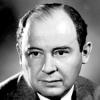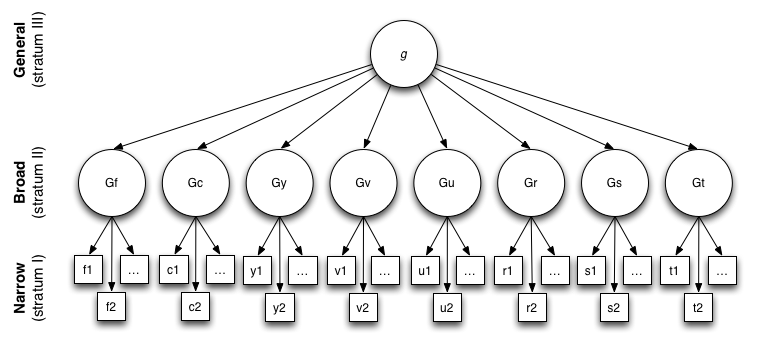sorry, just regurgitating an incomplete list, verbatim from an old post:
Effects of alcohol aqueous extract from Rhodiola rosea L. roots on learning and memory
Using the maze-method with negative (punitive) reinforcement, it has been found that Rhodiola extract in a single dose of 0.10 ml per rat essentially improves learning and retention after 24 hours . Significant improvement of the long-term memory is also established in memory tests after 10-day treatment with the same dose of the extract. In the other two doses tested (0.02 and 1.0 ml per rat) the extract has no substantial effect on learning and memory. In a dose of 0.10 ml per rat the Rhodiola extract had a favou rable effect on the training process using the "staircase" method with positive (food) reinforcement as well. With the other methods used (active avoidance method with negative reinforcement "shuttle-box" and passive avoidance methods "step down" and "step through") Rhodiola extract in the dose used (0.10 ml per rat) had no substantial effect on learning and memory
Effect of bacoside extract from Bacopa monniera on physical fatigue induced by forced swimming.
The antifatigue effect of bacoside extract (BME) from Bacopa monniera (L.) Wettst. was investigated. Rats were subjected to weight-loaded forced swim test (WFST) every alternate day for 3 weeks. The BME at a dosage of 10 mg/kg body weight was administered orally to rats for 2 weeks in order to evaluate the following biomarkers of physical fatigue: swimming time, change in body weight, lipid peroxidation, lactic acid (LA), glycogen, antioxidant enzyme activities such as superoxide dismutase (SOD) and catalase (CAT) and blood parameters, namely blood urea nitrogen (BUN) and creatine kinase (CK). The exhaustive swimming time was increased by 3-fold in the BME supplemented group compared with that of the control group on day 13. The BME treatment lowered malondialdehyde (MDA) levels in brain, liver and muscle tissues by 11.2%, 16.2% and 37.7%, respectively, compared with the control exercised group (p < 0.05). The BME also reduced the LA, serum BUN and CK activities significantly compared with that of the control. Administration of BME significantly protected the depletion of SOD and CAT activities. The HSP-70 expression studies by western blot also confirmed the antifatigue property of BME. The present study thus indicates that BME ameliorates the various impairments associated with physical fatigue.
An open-label study to elucidate the effects of standardized Bacopa monnieri extract in the management of symptoms of attention-deficit hyperactivity disorder in children.
SBME significantly reduced the subtests scores of ADHD symptoms, except for social problems. The symptom scores for restlessness were reduced in 93% of children, whereas improvement in self-control was observed in 89% of the children. The attention-deficit symptoms were reduced in 85% of children. Similarly, symptom scores for learning problems, impulsivity, and psychiatric problems were reduced for 78%, 67%, and 52% of children, respectively. It was observed that 74% of the children exhibited up to a 20% reduction, while 26% of children showed between a 21% and a 50% reduction in the total subtests scores. Standardized extract of B monnieri was found to be effective in alleviating the symptoms of ADHD and was well-tolerated by the children.
Effects of 12-Week Bacopa monnieri Consumption on Attention, Cognitive Processing, Working Memory, and Functions of Both Cholinergic and Monoaminergic Systems in Healthy Elderly Volunteers
At present, the scientific evidence concerning the effect of Bacopa monnieri on brain activity together with working memory is less available. Therefore, we aimed to determine the effect of B. monnieri on attention, cognitive processing, working memory, and cholinergic and monoaminergic functions in healthy elderly. A randomized double-blind placebo-controlled design was utilized. Sixty healthy elderly subjects (mean age 62.62 years; SD 6.46), consisting of 23 males and 37 females, received either a standardized extract of B. monnieri (300 and 600 mg) or placebo once daily for 12 weeks. The cholinergic and monoaminergic systems functions were determined using AChE and MAO activities. Working memory was assessed using percent accuracy and reaction time of various memory tests as indices, whereas attention and cognitive processing were assessed using latencies and amplitude of N100 and P300 components of event-related potential. All assessments were performed before treatment, every four weeks throughout study period, and at four weeks after the cessation of intervention. B. monnieri-treated group showed improved working memory together with a decrease in both N100 and P300 latencies. The suppression of plasma AChE activity was also observed. These results suggest that B. monnieri can improve attention, cognitive processing, and working memory partly via the suppression of AChE activity.
Learning and memory-enhancing effect of Bacopa monniera in neonatal rats.
The aim of this study was to evaluate the learning and memory-enhancing effect of Bacopa monniera in neonatal rats.
Learning is an acquisition and storage of information as a consequence of experience. Memory is a relatively permanent storage form of the learned information. In the process of 'learning', activation of neurons occurs in specific areas or specific memory systems of the brain concerned with the processing of the specific modality of sensory information. Rasayana plants are said to prevent ageing, re-establish youth, strengthen life, brain power and prevent diseases. Bacopa monniera (BM) is shown to be very useful in improving learning and memory.
In the present study neonatal rat pups (10 days old) were given different doses of BM extract orally for different periods of time. These rats were then subjected to spatial learning (T- Maze) and passive avoidance tests along with the age matched normal and gum acacia control rats. The data were compared with those of control rats.
The results showed improvement in spatial learning performance and enhanced memory retention in neonatal rats treated with extract of BM.
We conclude that treatment with BM extract during growth spurt period of neonatal rats enhances learning and memory (Tab. 3, Fig. 3, Ref. 45). Full Text in free PDF www.bmj.sk.
Effect of Bacopa monniera Linn. (brahmi) extract on learning and memory in rats: A behavioral study
Extracts of Bacopa monniera (Brahmi, BM), a traditional ayurvedic medicine, have been reported to have memory-enhancing effects in animals. However, there are no studies in which different dosages or chronic use have been explored. The current study examined the effects of standardized extract of BM on behavioral changes of Wistar rats when administered the extract for various durations and in varying doses. We divided the animals into 2-, 4-, and 6-week treatment groups. Rats in each of these groups were divided into 20 mg/kg, 40 mg/kg, and 80 mg/kg dose groups (n=8 for each dose). After the treatment period, the rats, along with age-matched normal and gum acacia control rats, were subjected to spatial learning (T-maze) and passive avoidance tests. The data were compared with those of age-matched control rats. The study was conducted at the Melaka Manipal Medical College, Manipal University, Manipal, Karnataka, India. The results showed improvement in spatial learning performance and enhanced memory retention in rats treated with BM extract. These results clearly indicate that oral administration of BM extract improved learning and memory in rats.
Panax ginseng (G115) improves aspects of working memory performance and subjective ratings of calmness in healthy young adults
Extract of Ginkgo biloba leaves reverses yohimbine-induced spatial working memory deficit in rats
Green tea extract enhances parieto-frontal connectivity during working memory processing
Plant-Derived Flavanol (−)Epicatechin Enhances Angiogenesis and Retention of Spatial Memory in Mice
Sonchus asper: brain antioxidant markers, cognitive performance and acetylcholinesterase activity of rats
Effect of a polyphenol-rich wild blueberry extract on cognitive performance of mice, brain antioxidant markers and acetylcholinesterase activity
Edited by gamesguru, 22 September 2015 - 08:37 PM.























































